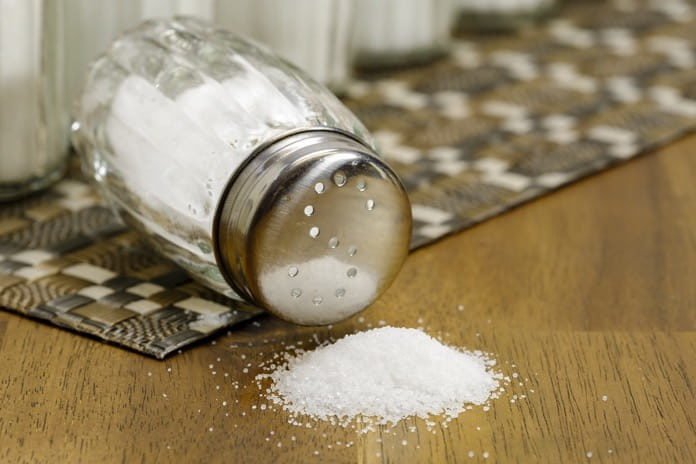Strong evidence suggests that a high-salt diet influences the immune system and immune cell levels in circulation. In a review published in Frontiers in Physiology, authors assess the effect of salt intake on arthritis, Crohn’s disease, and multiple sclerosis.
Immune-mediated diseases are complex, life-long disorders that are caused by immune system dysfunction. The most common immune-mediated diseases are type 1 diabetes, rheumatoid arthritis, psoriasis, multiple sclerosis, and inflammatory bowel diseases, like Crohn’s disease. Both genetic factors and environmental factors, such as lifestyle and geographic location, contribute to the disease development and symptoms. Diet is considered an environmental factor that can be modified to reduce the risk of developing certain immune-mediated diseases.
Salt intake could influence the development of arthritis, Crohn’s disease, multiple sclerosis, or other IMDs. Sodium is essential for human survival and fundamental in many physiological processes. However, the mean salt consumption in Western and Asian countries exceeds the World Health Organization’s recommendations, which contributes to the prevalence of diseases like high blood pressure and cardiovascular disease, and immune-mediated diseases. In a review published in Frontiers in Physiology, authors assess the effect of salt intake on arthritis, Crohn’s disease, and multiple sclerosis.
Eating too much salt is associated has been associated with altered immune functions
High salt consumption is associated with altered immune function leading to unregulated inflammation. Dysregulated immune responses are partly responsible for immune-mediated diseases; in healthy volunteers, a high-salt diet was associated with increased immune cell levels, and reduced salt intake decreased immune cell levels. This difference in immune cell levels translates to disease – in mice with rheumatoid arthritis, a low salt intake was associated with decreased joint severity compared to a high salt intake.
High salt intake may increase the risk of rheumatoid arthritis
Clinical evidence also strongly suggests that high salt intake increases the risk of developing rheumatoid arthritis. In mice, high salt intake was found to induce spontaneous or more severe colitis (colon inflammation), a symptom of Crohn’s disease, than low-salt intake.
In patients with multiple sclerosis, a medium- or high-salt intake increased disease activity and severity compared to patients with a low-salt intake, however other studies report that salt intake has no effect on the progression of multiple sclerosis.
Conscious diet decisions regarding salt intake may reduce the risk of immune-mediated diseases
Salt is abundant in the human body and essential for life, however, excess salt is known to increase the risk of developing a variety of diseases including high blood pressure, cardiovascular disease, and kidney disease. Now, strong evidence suggests that salt intake may also influence the risk of developing immune-mediated diseases. A variety of factors contribute to the development and symptoms of immune-mediated diseases, but salt intake is one risk factor that could be reduced or eliminated by a lifestyle change.
More research is necessary to understand how salt intake contributes to immune-mediated diseases, but making conscious diet decisions regarding salt intake with will likely reduce the risk of acquiring immune-mediated diseases and other diseases.
Written by Mallory Wiggans
Reference: Toussirot, E., Bereau, M., Vauchy, C. &Saas, P. (2018). Could sodium chloride be an environmental trigger for immune-mediated diseases? An overview of the experimental and clinical evidence. Frontiers in physiology, 9, 440.



